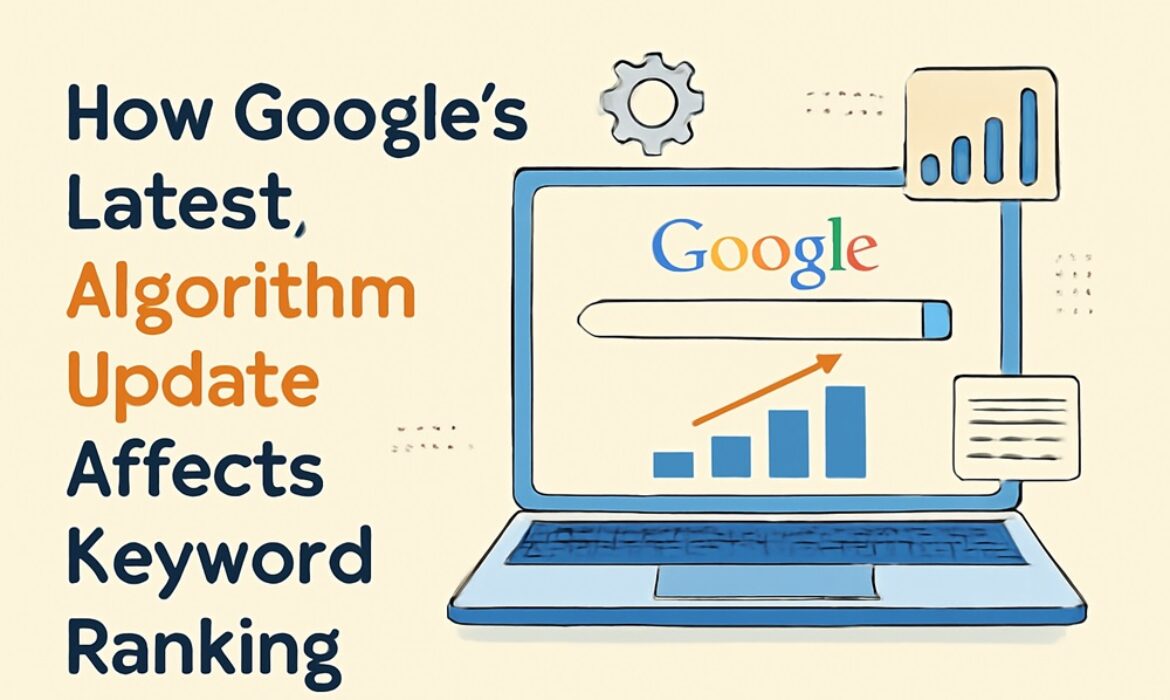Google’s algorithm updates constantly reshape the SEO landscape, forcing marketers and website owners to adapt. The latest Google update (June 2025) introduces significant changes in how websites are ranked, particularly affecting keyword targeting, content relevance, and user experience signals.
If you’ve noticed sudden ranking drops or unexpected traffic fluctuations, this update could be the reason. In this guide, we’ll explore:
✅ Key changes in the latest Google update
✅ How it impacts keyword rankings
✅ Actionable SEO strategies to recover & rank higher
Let’s dive in!
What’s New in the Latest Google Algorithm Update?
Google’s June 2025 core update continues its shift toward AI-driven search evaluation, prioritizing high-quality content, user experience, and semantic search relevance. Here are the biggest changes:
1. Enhanced AI & Natural Language Processing (NLP)
- Google’s Gemini AI now plays a bigger role in understanding search intent.
- Keyword stuffing and exact-match phrases are less effective—contextual relevance matters more.
2. Stricter Content Quality & EEAT (Expertise, Authority, Trustworthiness)
- Low-quality AI-generated content is being penalized unless properly refined.
- YMYL (Your Money Your Life) sites need stronger author credentials and citations.
3. User Experience (UX) Signals Gain More Weight
- Core Web Vitals (LCP, FID, CLS) remain crucial.
- Mobile-first indexing is now the default—slow mobile pages lose rankings.
4. Semantic Search & Topic Clusters Over Exact Keywords
- Google rewards comprehensive content that covers a topic in-depth.
- LSI (Latent Semantic Indexing) keywords and related terms help rankings.
How the Latest Google Update Affects Keyword Rankings
1. Exact-Match Keywords Lose Dominance
- Old SEO: Ranking for exact phrases like “best running shoes 2025” was easier.
- New Reality: Google now looks for natural variations (e.g., “top running shoes this year”).
Solution:
- Use semantic keywords and synonyms.
- Optimize for long-tail queries and question-based searches.
2. Ranking Volatility for Low-Quality Content
- Thin, generic, or spun content is losing visibility.
- AI-generated articles without human editing face penalties.
Solution:
- Conduct a content audit and remove/rewrite weak pages.
- Add original research, expert insights, and citations to boost EEAT.
3. Voice Search & Conversational Queries Impact Rankings
- More searches are voice-activated (e.g., “What’s the best budget laptop?”).
- Featured snippets and position zero rankings depend on natural-language answers.
Solution:
- Structure content in Q&A format.
- Target long-tail, question-based keywords.
4. Backlinks Still Matter, But Relevance is Key
- Spammy or irrelevant backlinks hurt rankings.
- Authoritative, niche-relevant links boost credibility.
Solution:
- Disavow toxic backlinks.
- Focus on guest posts, expert roundups, and PR mentions in your industry.
Actionable SEO Strategies to Adapt to the Latest Google Update
1. Optimize for Semantic Search & Topic Clusters
- Use tools like Google’s People Also Ask (PAA) and LSI Graph to find related terms.
- Create pillar content and interlink supporting articles.
2. Improve Content Depth & EEAT Signals
- Add author bios, credentials, and citations.
- Include case studies, stats, and expert quotes for authority.
3. Speed Up Your Site & Fix UX Issues
- Test Core Web Vitals in Google Search Console.
- Compress images, enable lazy loading, and use a fast hosting provider.
4. Monitor Rankings & Adjust Keyword Strategy
- Use Ahrefs, SEMrush, or Google Search Console to track fluctuations.
- Shift focus from exact-match to intent-based keywords.
Final Thoughts: Adapt or Lose Rankings
Google’s latest algorithm update reinforces its commitment to high-quality, user-first content. Websites relying on outdated SEO tactics (like keyword stuffing or thin content) will struggle, while those adapting to semantic search, EEAT, and UX optimization will thrive.
Key Takeaways:
✔ Move beyond exact-match keywords—optimize for search intent.
✔ Strengthen EEAT signals with expert-backed content.
✔ Improve page speed and mobile experience.
✔ Monitor rankings and adjust strategies proactively.
Need help navigating the update? Audit your site now to stay ahead of the competition!







[…] blog will dive into the top 20 On-Page SEO Factors that play a crucial role in improving your Google rankings. From technical elements like page speed to content-related factors like keyword optimization, we […]